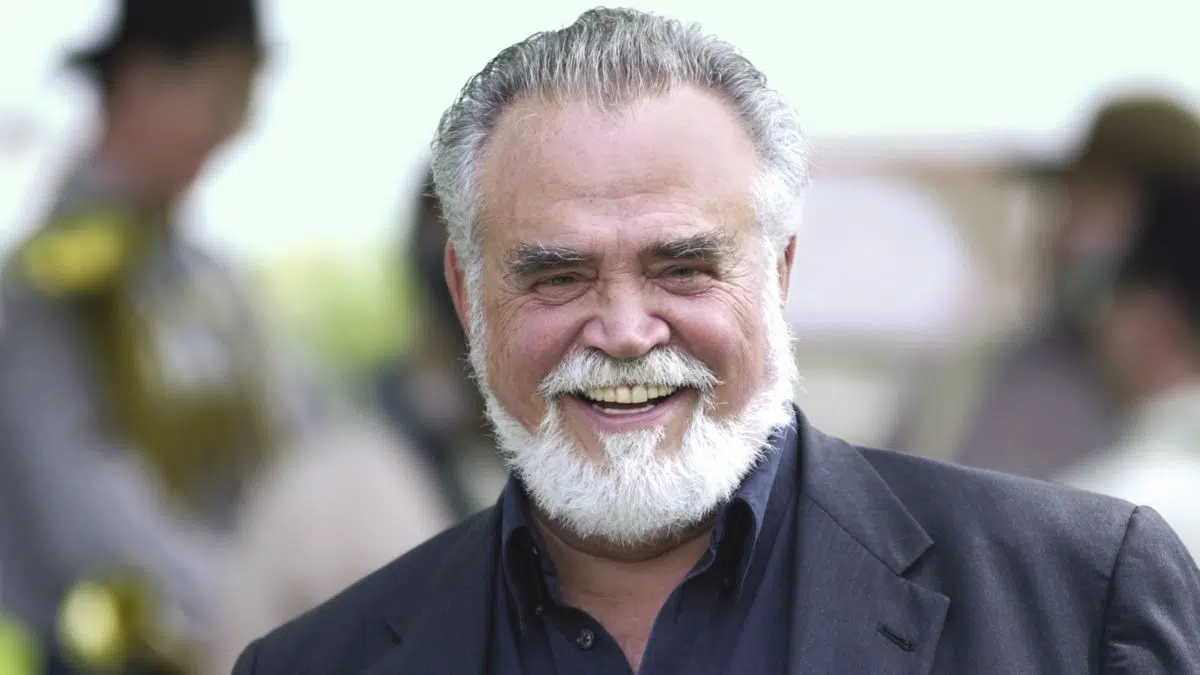This is the second in our three-part series of interviews with persons who worked side-by-side with Herb Kohler, providing unique and illuminating insights into the dynamic leader of the Kohler Company who grew his grandfather’s business from plumbing manufacturer to a global enterprise that now includes hospitality and golf among its best-known products.
Alice Edland was Group Vice President for Hospitality and Real Estate, working for Kohler for 27 years in various roles, 10 of those years directly with Herb Kohler. She and Ed Allmann were the two members of management that Kohler selected to travel to US Women’s Open sites in early advance prep for hosting the 1998 USGA event at Blackwolf Run, which proved to be a growth experience for both when a sudden death ending forced a clash with another major Kohler golf event the same day. Our interview with Alice is below.
KZ: Alice, you worked for Kohler through many of the years that saw real transformation, correct?
AE: Through the construction of Blackwolf Run, then the Inn on Woodlake, the Kohler Waters Spa, Riverbend, Whistling Straits and all the golf events.
KZ: So you saw a lot of that growth happening then?
AE: Yes, I did. …So we opened Blackwolf Run in 1998, I believe it was…he had said to me “I would like to have big golf events.” So I came back the next month, and I said: “Herb, we can have the Wisconsin State Open, and we can get some of these little tournaments that people in the state sponsor and that type of thing.” And he looked at me and said: “You don’t get it. I want BIG golf events. And he was someone, when you worked for him, that had high expectations, and you knew, to do your job, you better exceed those expectations. So I, and I got him to help start kind of cold-calling the USGA and the PGA, and flying off to tournaments and things, and ,eventually, of course, we got the ‘98 U.S. Women’s Open. For Herb, I think that was…he knew he wanted a national event…international event, but had no idea the scope of those kind of things. I picked him up one day in a golf cart and took him behind the scenes – you know, where the food preparation was and all this kind of stuff – and he was just astounded, because he had not seen that part of a golf event before. And he kept saying: “All these people…all these people are working!” So, he truly respected all the people out there that were working, and that he was the guy that got to be on TV, and had George Bush there and all those kinds of things. And I think Herb would push you to pull off big things, and he didn’t always have the time to go visit, you know, all the people working at something, but he truly realized the hundreds of people it took to pull off the things that he wanted to.
KZ: So, in other words, he saw “the big picture”.
AE: Oh, yes…yes. And he was creative, and imaginative, but he also wanted to know the details. I remember one day he was asking me something to the effect of “What are you going to wear?” And I finally realized he meant “What’s your ticket going to look like?” He wanted to know how people were going to be allowed on the property and what their tickets would look like. So you never knew – he’d see the big picture – but he also had a level of detail that he really enjoyed.
I remember we were picking out new china for the Immigrant Restaurant, and we had all the paperwork written up and all, and it was a big purchase to get all that china, and he said: “Well, what china’s available?” And he sat and went through a catalogue page-by-page, because Herb’s somebody that never got to pick out china. He never did that in his life, you know, and wanted to see what was out there and what was available. So he had the big picture, incredible sense of style and taste, but also liked to be exposed to all the little things. And I think Hospitality is the group that let him do that more than, you know, plumbing, engines…and generators…or whatever.
KZ: Was there any sort of transformation in his approach to business when the Hospitality started making such a prominent part of the business?
AE: I think he realized that the customer was much closer to the product, and to the employees, than they are with his other manufacturing businesses. If he was out someplace with a friend, and someone had a bad hamburger at the Horse and Plow, they’d tell him about it. Well, he’d hear those thing about engines and generators, and so I think, for him, one thing was recognizing how close the public is to the product compared to manufacturing.
KZ: So it didn’t matter to him what segment of the public was going to buy his product; he wanted it to be just as good for anybody, straight across the line.
AE: Oh, absolutely, yes. He had a standard of excellence, and he didn’t care what it was. He wanted it to be of the highest standard possible, whether it was the dishes in the restaurant, or the hamburger in the Horse and Plow, or a golf practice range, or whatever…he always had a certain level of quality he wanted to maintain.
KZ: And it did appear that he achieved that, without exception.
AE: Oh, I think so. There were ups and downs over the years, but yes, everybody knew that was the expectation.
KZ: I wanted to revisit that U.S. Women’s Open in ‘98. Ed (Allman) relates that you and he had to pow-wow with Herbert when the Open went into sudden-death, and then you were supposed to have a grand opening at Whistling Straits at the same time. So, tell me what it was like to work under a crisis situation with Herb Kohler.
AE: There was a part of it with Herb to help him understand, logistically, “This is complicated!”. Because we had semis sitting out on nearby roads waiting to come in to start picking up things from the ‘98 Women’s Open, and you know, bleachers, and food stands, and stuff, and all of a sudden that wasn’t going to happen. And we need to decide what to do about ticket-holders, and we need to decide what you want to do with the special guests you have here, like George Bush, and things like that. He would tend to…it was kind of a high-pressure situation…he would step off a little bit and he would say: “You guys figure it out and tell me what’s going to happen.” He, I think, knew that you’ve gotta have operational people, and let them do their operational things right now.
I remember, I think it was the first day of regular play of the ‘98 Women’s Open, and Herb was driving into Kohler to go to his office and got stopped in traffic on I-43 because the traffic was backed up so far. We had no clue that was going to happen. So he’s on the phone, and he said to me: “I want you to get on County Trunk “Y” where the bridge is over 23, and I want to see you standing there when I get off the exit.”
And I got off the exit, and he picked me up in his car, and he said: “What are WE doing about this?” Whereupon, you know, we pulled together engineers, and landscape guys, and started mowing more parking lots. And he had ideas of what should happen and, of course, we took those into consideration, but we also just knew “we’ve gotta straighten this problem out.” And people did. You know, people rise to the occasion, and Herb knew that people would. You know, you didn’t want to disappoint.
KZ: If there is a stereotype that he definitely did not fulfill, thinking about somebody who operates a business of that magnitude, where did he break the stereotypes? Because it sounds like he wasn’t the stereotypical business owner.
AE: No, and I think again part of that was being able to go from the really big picture, down to little details which he found it interesting to work with. He was someone that, if it was a situations…I’ll give you an example – this is bizarre. South of Kohler there’s a big mound that is made up of coal from the pottery, fondly called “Porcelain Peaks”. And he kept looking at that, thinking that “we should do something with this”. You know, it’s natural, it’s this big hill, and he had us investigate doing Luge on it, of all things, and so we had people out visiting Luge courses, because it was an idea that, maybe, that would work here. And, in the end, we showed him the logistics and what it would take, and our snowfall, and all that stuff, and he went: “Nah, I guess that still wouldn’t work”, and he backed off. So he would challenge you to take on something, and you knew if you wanted to tell him that it wasn’t work, you’d better have your homework done. But once he heard the story, he’d go: “Ok, we’re movin’ on, no Luge course here.” And we went through that with several things over the years.
KZ: So, the people he selected, he put a lot of trust into them, he respected their ideas…it sounds like he cared a lot about his people.
AE: He did. And yet he could be a very tough taskmaster. If he didn’t trust someone, he could turn on them pretty quickly. But, I think if he felt you were being honest, and you weren’t afraid to say “I don’t know, but I’ll find out”, he respected that.
KZ: Any final thoughts?
AE: I felt he was a gracious, wonderful person to work for. He was also challenging and, at times, frustrating, but I knew you were always trying to get to the best result. Whatever it was, you were trying to get to the best result. And that’s something that I think was…something for me in my role…was great to take to employees, to say: “No, we’re going to try to get to the best result.” And everybody can understand that, why he would want to do it.
KZ: So there was consistency…everybody knew that’s what he wanted.
AE: Yes, yes!
The third and final perspective on Herbert V. Kohler Jr. will be posted tomorrow.






Comments